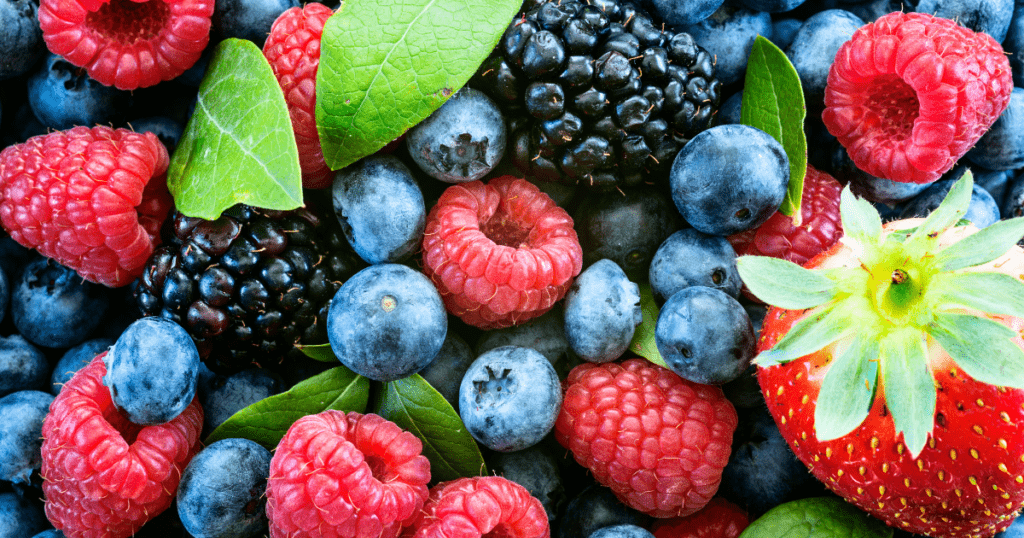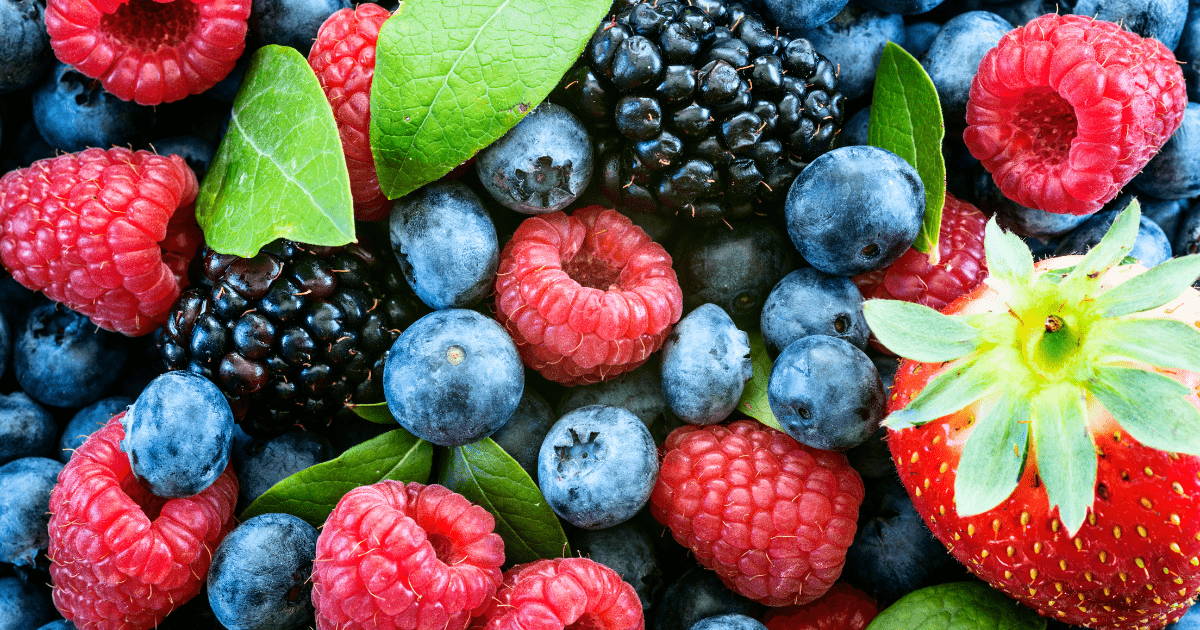Health Benefits of Berries: Dive into Impressive Benefits
Proven Health Benefits: How Berries Can Boost Heart and Brain Health
Berries are one of the most adaptable and versatile food options worldwide. They can be harvested in natural settings, cultivated in personal gardens, or purchased from grocery stores. The diverse array of berries encompasses numerous varieties, ranging from the well-loved strawberry to the whimsically named gooseberry. Berries have numerous health benefits.
Many berries have earned the “superfoods” label, a well-deserved distinction due to their impressive nutritional profiles. Despite their small size, berries are densely packed with essential nutrients, making them appealing to individuals of all ages.
In the present season, fresh berries are prime among the assortment of delectable and nutritious fruits. Their status as nutritional powerhouses is substantiated by their abundant vitamins, minerals, and disease-fighting components. However, their vulnerability to spoilage and relatively higher costs might raise concerns about purchasing them. The rationale behind frequent berry consumption and suggestions for cost-effective shopping and effective home storage techniques to extend their shelf life is explained below.

Health Benefits of Berries
Berries offer a range of nutritional advantages. Berries contain essential nutrients such as potassium, magnesium, vitamins C and K, and dietary fiber. They are low in calories and contain relatively modest amounts of natural sugars. Additionally, they contain prebiotics and carbohydrates that support the growth of beneficial gut bacteria.
The substantial benefits of berries are largely attributed to anthocyanins, compounds responsible for the red, purple, and blue pigments. A study published in BMJ in 2013 indicated that consuming blueberries, a significant source of anthocyanins, three times a week can potentially reduce the risk of Type 2 diabetes. Another study, published in BMJ in 2016 and spanning up to 24 years, revealed that individuals who regularly consumed foods rich in anthocyanins, primarily blueberries and strawberries, experienced less weight gain than those who consumed them infrequently.
Berries and Heart Health
The heart-protective qualities of blueberries and strawberries are also noteworthy. A study involving over 90,000 women, published in the journal Circulation, showed that individuals who consumed these berries more than three times a week had a 34 percent lower risk of heart attacks than those who consumed them once a month or less over 18 years. Moreover, a study published in the 2019 American Journal of Clinical Nutrition demonstrated that consuming the equivalent of a cup of blueberries daily for six months improved cardiovascular health markers in overweight and obese adults with metabolic syndrome, a condition associated with increased risks of heart issues and Type 2 diabetes. Consistent consumption of blueberries has also been linked to lowered systolic blood pressure.
Eric Rimm, a respected figure in epidemiology and nutrition at Harvard’s T.H. Chan School of Public Health, who has extensively researched berries, suggests that those who incorporate berries into their diets regularly tend to experience longer lifespans. He recommends consuming a cup of berries daily during peak season to reap these benefits.
Cognitive Nourishment
Blueberries, strawberries, and raspberries have also emerged as potent foods for promoting cognitive function, particularly in learning and memory. Barbara Shukitt-Hale, a neuroscientist at Tufts University’s Jean Mayer USDA Human Nutrition Research Center on Aging, emphasizes that consuming blueberries at least once a week or strawberries at least twice a week, as indicated by a two-decade-long Harvard study involving women aged 70 and above, may potentially delay cognitive aging by up to two and a half years. Shukitt-Hale’s research demonstrated that older adults who consumed the equivalent of a cup of fresh blueberries daily for three months outperformed their counterparts on learning and memory tests compared to those who received a placebo. Ongoing research suggests that strawberries and raspberries may offer similar cognitive advantages.
Shopping and Storage Tips
For the freshest option, it’s recommended to source berries locally, either from farmers’ markets or supermarkets. Moreover, according to Joan Salge Blake, a nutrition professor at Boston University, the cost-effectiveness of purchasing berries aligns with their seasonal availability and local abundance. When encountering two-for-one promotions, consider buying extra berries for freezing, as freezing does not compromise their beneficial compounds and may even preserve them, as noted by Barbara Shukitt-Hale.
To extend the shelf life of fresh berries at home, storing them in a covered container in the refrigerator is advisable. It’s also suggested to wait to wash them until just before consumption. Enhancing the longevity of strawberries can involve using paper towels to line containers and removing the stems. These measures can help preserve the freshness of berries for up to a week.
Notable Nutritional Aspects:
- Blackberries are notable for their high potassium content, boasting 233 milligrams per cup, and fiber levels comparable to raspberries.
- Blueberries contain compounds that promote the generation and communication of new nerve cells in the brain.
- Raspberries, whether red, black, or golden, exhibit the highest fiber content among these berries, with 8 grams per cup.
- Strawberries are rich in vitamin C, providing approximately 85 milligrams per cup. This aligns closely with the daily recommended intake of 90 milligrams for men and 75 milligrams for women.
Category
- Health Issues (72)
- Healthy Diet (48)
- Herbs for Health (11)
- Mental Health (33)
- Skin Care (20)

